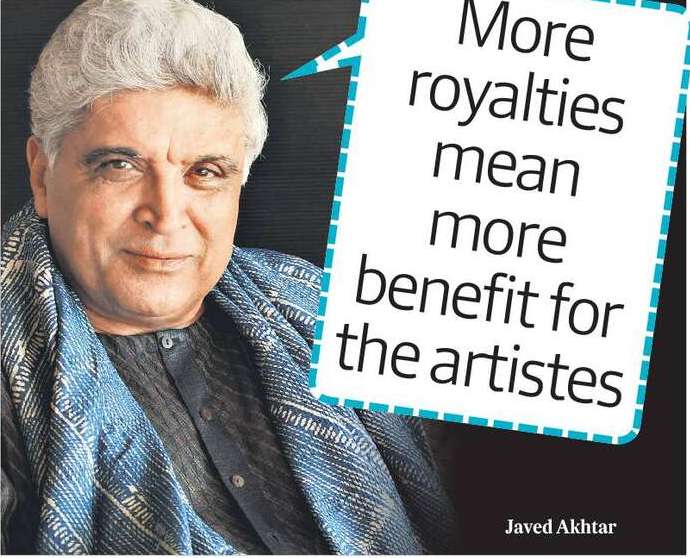Javed Akhtar lauds BJP govt for supporting IPRS: "Despite being in opposition at one point, they helped IPRS and continue to do so"
8:06 AM
Posted by Fenil Seta

Samarth Goyal (HINDUSTAN TIMES; May 1, 2023)
Lyricist-writer Javed Akhtar, who took over the Indian Performing Rights Society (IPRS) as its chairman in 2017, has played a noteworthy role in ensuring the shift in royalties distribution over the last six years. According to a recent report in ANI, under Akhtar’s leadership, IPRS touched Rs. 400 crores in revenues and surpassed Rs. 300 crores in royalties distribution in the financial year 2022–2023.
“We took over IPRS in 2017 when the income was between ₹40-45 crore,” Akhtar shares, acknowledging the role of the current government in the feat under the leadership of Prime Minister Narendra Modi. “Despite being in opposition at one point, they helped IPRS, and now that they are in power, they continue to support us,” he adds.
One of the key achievements that Akhtar sees in the music industry is the decentralization and democratization of royalties, with more sources coming to IPRS. “The more royalties come in, the more it will benefit artistes,” he shares.
In the digital era, IPRS is also looking to adapt to new-age technology for the benefit of its members. For instance the launch of Backoffice has been a major milestone in these terms, bringing increased transparency to the overall system. “It is creating more avenues for communication,” observes Akhtar, adding, “However, the new sources (of streaming music) should not be used to evade the fair share of artistes.”
The amendments to the Copyright Act in 2012 cleared the way for a new beginning for IPRS. But challenges remain in implementing the law. Akhtar explains, “We are currently in court against those who are not complying with the law. We are striving to find a mutual solution by engaging with the government.”
This entry was posted on October 4, 2009 at 12:14 pm, and is filed under
Bollywood News,
Indian Performing Rights Society,
Javed Akhtar,
Narendra Modi
. Follow any responses to this post through RSS. You can leave a response, or trackback from your own site.
Subscribe to:
Post Comments (Atom)
Post a Comment